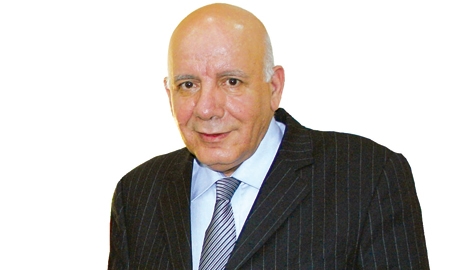Algeria’s fertile soil has made its agricultural sector the second-largest contributor to the nation’s GDP, after hydrocarbons, accounting for about 8 per cent of its income and providing employment for a quarter of its population. “The scope for progress is enormous,” says Algeria’s Minister for Agriculture and Rural Development Rachid Benaissa.
However, Algeria’s agricultural production is far below demand and the country continues to import large volumes of bulk agricultural products and packaged foodstuffs, especially from France, Spain and Italy. Thanks in large part to its geographical proximity, the EU is a major agricultural trading partner, accounting for 39 per cent of Algeria’s agricultural and food imports.
Rural economic activity is vital, because to keep people in these homes, they should have a business, even if it is small. Rachid Benaissa,
Minister for Agriculture
and Rural Development |
In order to reduce the country’s import bills, particularly for cereals, milk, sugar and oil, the government’s new agricultural development strategy places particular emphasis on making better use of its lands and improving homegrown food production and quality. Algeria has around 8 million hectares of arable land, 51 per cent of which is dedicated to field crops – mostly cereals and pulses. However, only 7 per cent of this land is irrigated, so Algeria’s agriculture industry remains heavily dependent on rainfall, and imports. Some 6 per cent of the country’s arable land is taken up with arboriculture and 3 per cent by industrial crops.
The National Agricultural Development Plan (PNDA) launched in 2000 was followed by the ten-year National Agricultural and Rural Development Plan (PNDAR) in 2004. Both plans have made thousands of hectares of land available for agricultural use. Algeria has made notable progress in its efforts to see the country transformed from a net importer of agricultural goods into an exporting economy, by prioritising the development of any items that have a comparative advantage, such as dates, wine and olives.
“There are no territories with no future; there are only territories without projects. So we have to look into and develop the human, natural and physical potential of each territory,” says Mr Benaissa.
Under the government’s current five-year plan for rural housing, 900,000 are being constructed as part of its commitment to improving people’s lives in the country. “Rural economic activity is vital, because to keep people in these homes, they should have a business, even if it is small. It gives them a means and a reason to stay in the country and keep small agricultural activities going,” says Mr Benaissa.
In recent years, agricultural finance has experienced significant growth following the introduction of a new credit mechanism featuring seasonal interest-free loans to the agricultural sector. Opening up lines of credit has been a boon for rural communities, as around 70 per cent of Algeria’s 1.1 million farms are smallholdings, i.e. less than 10 hectares, and 80 per cent of these farms are sole landowners.
The government’s plans encompass four themes: the modernisation and rehabilitation of villages, economic diversification in rural areas, protection and enhancement of natural resources, and preservation of rural heritage. “It is a rural vision, it is action for rural women, and it is action for rural youth,” adds the Minister.
Long-standing environmental protection efforts in Algeria have received international acclaim. For example, the UN Convention to Combat Desertification (UNCCD) recently referred to Algeria as “a model country in integrating the fight against desertification and land degradation in an overall development policy” – a model that it encourages other countries to adopt.

0 COMMENTS